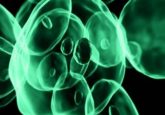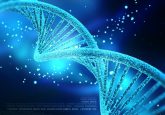Chemotherapy duo powerful against breast cancer stem cells in preclinical study
A combination of 5-azacytidine and the HDAC inhibitor butyrate has demonstrated efficacy in targeting cancer stem cells in a preclinical breast cancer model. These findings, published this week in Cancer Research, present a treatment option that could be explored in the disease.
The 5-azacytidine/butyrate duo was observed to reduce the number of stem cells in a mouse model and also improved survival. According to the results of the study, neither agent alone was effective against the disease.
“Most current chemotherapy does not kill the stem cells, which are the cells of origin, only the tumor mass,” commented Muthusamy Thangaraju, the study’s corresponding author of the Medical College of Georgia and Georgia Cancer Center at Augusta University (GA, USA). “This combination might need to be considered for all breast cancer patients because their common denominator is cancer stem cells.”
Currently, azacytidine/butyrate are utilized in combination alongside tamoxifen, where they have been proven to aid in reduction of disease recurrence.
In terms of cancer stem cells, Thangaraju and team suggest that the combination targets two traits that are key to their ability to drive cancer development and spread. 5-azacytidine inhibits DNMT1 – a gene that has previously been shown to aid in the maintenance of normal breast stem cells and healthy breast tissue, as well as cancer stem cells.
High levels of DNMT1 reduce the expression of the ISL1 gene, a natural tumor suppressor and control mechanism for stem cells. When the DNMT1 gene was knocked out in a breast cancer model, it eliminated approximately 80% of breast tumors, particularly the most aggressive ones.
Also overexpressed in breast cancer are the signaling molecules RAD51AP1 and SPC25, which normally help repair the DNA damage; however, in cancer they instead enable growth and spread of cancer cells. Butyrate, which is present at high levels in breast milk, blocks excessive levels of these cancer-driving molecules.
Thangaraju highlighted how it is most likely the vulnerability to these so-called epigenetic changes that enable cancer that is resulting in cancer stem cells being susceptible to the combination 5-azacytidine/butyrate therapy.
Source: Medical College of Georgia press release via EurekAlert!





